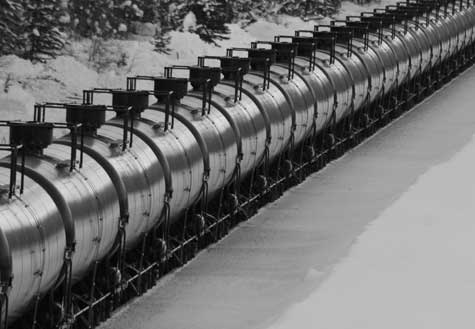
The end of the oil export ban could be a game-changer for the Northwest. The dismantling of a 40-year-old national policy to support energy independence could trigger a tsunami of crude oil moved by train or pipeline, increasing the risks of local fires and spills.
Significantly, it also means that current analyses of oil projects are obsolete. All current draft Environmental Impact Statements for oil-by-rail projects at Anacortes, Grays Harbor, and Vancouver should be re-done to assess the potential for massive increase in large-scale oil transport that the lifting of the export ban could represent for the region.
“Lifting the ban is an industry giveaway that makes the Northwest’s oil opposition movement more important than it’s ever been,” said Eric de Place, policy director at Sightline Institute. “The region will choose whether to become a globally significant shipping hub for crude oil or a thin green line that charts a course toward climate protection.”
The Pacific Northwest has become a target for fossil fuel projects, including oil, coal, and fracked natural gas, primarily because it is cheaper to ship to Asia from the Northwest than other regions.
See also:
- Sightline’s project-by-project analysis of oil train proposals in the Northwest
- Sightline latest article, What the Northwest Needs to Know about the Crude Oil Export Ban Lift
www.sightline.org







